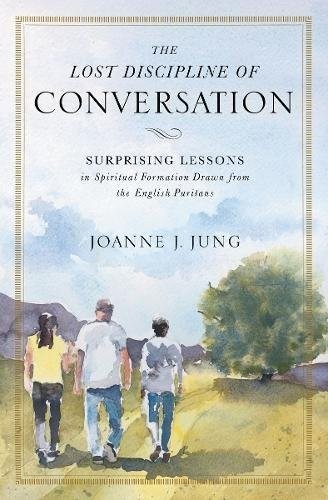This is part one of a three-part series that is based on my forthcoming book , to be released by Zondervan in 2018.

It is a sad but accurate appraisal that in our contemporary society we are held captive by Netflix, Facebook, the Internet, television and Amazon. We are victims of a repertoire of fast-food menus, instant gratification, and overcrowded, conflicting, and unrelenting schedules. Our entertainment-soaked culture, which wrestles with boredom, thrills, and materialism, has contributed to the sensory overload common to urban life. Our addiction to information technology with its online connections, news and internet communication, websites, blogs, and streaming (to name a few) exacerbates the preexisting flood of intruding must-haves and must-dos that demand our time, attention, affections, and devotion.
External factors such as mobilityŌĆöpeople moving out of town, out of state, out of sight and hence, out of mindŌĆöhave taken their toll on community. To complicate matters, researchers are saying that our circle of friendsŌĆöwith whom we are most comfortably honest and vulnerableŌĆöis shrinking. The number has decreased over the past 10 years and it shows no signs of a change in course.[1] Many people are completely isolated from those with whom important matters could be discussed.[2] These same researchers, over a decade earlier, found that those with whom we have close and strong ties influence us and indirectly shape the kinds of people we become.[3]
Couple this with internal factors that contribute to the demise of face-to-face sharing of life. Consider the isolationism and pervasive individualism that has permeated our culture and it is no wonder why authentic spiritual transformation fostered in community is threatened. Our society is often described as being composed of individualists who are taught from early childhood to be independent. We are warned not to let anyone get too close. Any disclosure of hurts, doubts, or weaknesses should be reserved for a select few, if any at all. A perceived lack of strength or determination would reflect a flaw in character and render one unhealthy or unable to live out a full and meaningful life. We are convinced that anything worth doing is best done by oneself. One expects to ŌĆ£go it alone.ŌĆØ This thinking infiltrates our approach to others in our small groups, as Dallas Willard has described fellowship as often no more than ŌĆ£well-calculated distance.ŌĆØ[4] However, if our spiritual and emotional hurts were as visible as an open wound or a gash on our leg or arm, we would have to seek help and allow others to help as well.
Taken from The Lost Discipline of Conversation by Joanne J. Jung. Copyright ┬® 2018 by Joanne J. Jung. Used by permission of Zondervan. www.zondervan.com.
This is part one of a three-part series. In Part 2 of this blog post, IŌĆÖll outline what the human soul is, and IŌĆÖll touch on some of the needs of our souls.
[1] Miller McPherson, and Lynn Smith-Lovin, ŌĆ£Social Isolation in America: Change in Core Discussion Networks over Two Decades,ŌĆØ American Sociological Review 71, no. 3 (June 2006): 353-54.
[2] McPherson and Smith-Lovin, 372.
[3] Lynn Smith-Lovin and Miller McPherson, ŌĆ£You Are Who You Know: A Network Perspective on Gender,ŌĆØ in Theory on Gender/Feminism on Theory, Social Institutions and Social Change, ed. Paula England (New York: A. de Gruyter, 1993), 223-51.
[4] Dallas Willard, ŌĆ£The Reality of the Spiritual Life,ŌĆØ Christian Spirituality and Soul Care Lecture Series, Talbot School of Theology, 51┬▄└“, La Mirada, Fall 2006.
 51┬▄└“
51┬▄└“

.jpg)

